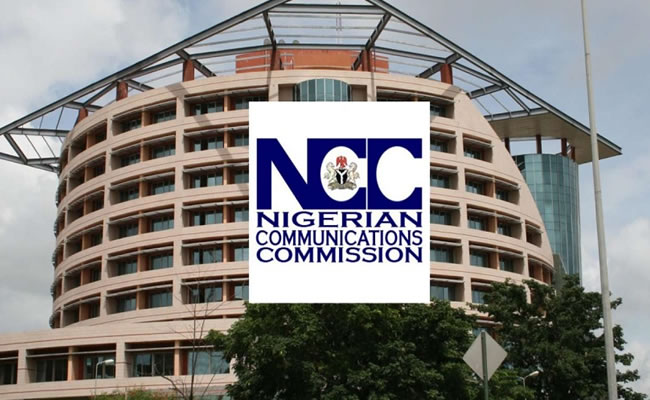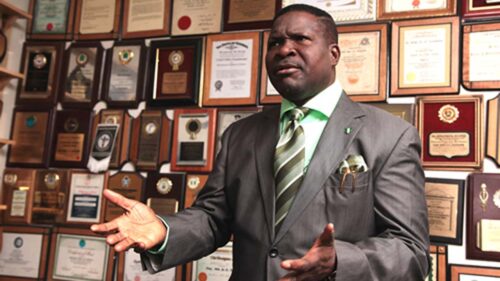NCC: Pioneering digital transformation for Nigeria’s future

By Motolani Oseni
In Nigeria, a burgeoning tech-savvy and upwardly mobile population is harnessing the benefits of digital technologies.
Driven by rapidly expanding internet access and a steady broadband penetration rate of about 43 per cent, the nation’s digital economy is set for significant growth, positively impacting various sectors and enhancing connectivity and digital skills across the country.
Global digital transformation is accelerating at an unprecedented rate. The COVID-19 pandemic highlighted the importance of remote work and virtual collaboration tools, making platforms like Zoom, Microsoft Teams, and Google Meet essential for meetings, conferences, and team collaboration.
E-commerce and online retail have revolutionized consumer behavior, allowing seamless ordering and delivery of goods and services. Even traditional brick-and-mortar businesses are integrating digital solutions to improve customer experience. Artificial Intelligence (AI) and the Internet of Things (IoT) are transforming education, healthcare, public services, energy management, and more.
READ ALSO: 25 People Feared Dead in Multiple Vehicle Crash in…
Central to this global digital shift is the indispensable role of telecommunications infrastructure. Universal, affordable, reliable, and fast telecom services are becoming social necessities, with mobile networks and data centers forming the backbone of digital transformation by enabling data storage, processing, and the integration of digital technologies into numerous use cases.
For President Bola Ahmed Tinubu, the Renewed Hope Agenda envisions a brighter future by empowering youth and women through emerging sectors like the digital economy.
To realize this vision, the Honourable Minister of Communications, Innovation and Digital Economy, Dr. Bosun Tijani, unveiled a blueprint titled “Accelerating our Collective Prosperity through Technical Efficiency,” aiming to support Nigeria’s economic growth by enhancing productivity through digital innovation.
Recognizing the critical role of resilient
telecommunications infrastructure in a robust digital economy, Dr. Tijani’s Strategic Agenda 2023—2027 sets ambitious targets: improving Quality of Service (QoS) by 50 percent by the end of 2024, increasing broadband penetration to 70 per cent by 2025, delivering urban data speeds of 25Mbps and rural speeds of 10Mbps by 2025, providing coverage to at least 80 percent of the population by 2026, reducing the rural connectivity gap from 61 percent to less than 20 percent by 2027, and boosting broadband investment by 300 to 500 percent by 2027.
Drawing from this strategic agenda, Dr. Aminu Maida, the Executive Vice Chairman and Chief Executive Officer of the Nigerian Communications Commission (NCC), has established three Strategic Focus Areas: the Consumers, the Industry and Licensees, and the Government.
Dr. Maida’s approach acknowledges that each stakeholder has unique perspectives and sometimes conflicting expectations of the Commission. His goal is to balance these needs while meeting expectations.
For consumers, who are central to his focus, Dr. Maida emphasizes ensuring an enhanced Quality of Experience (QoE) beyond the technically-evaluated QoS. QoE considers all touchpoints in the consumer journey, from network selection and onboarding to usage, support, and off-boarding.
Consumers are empowered to make informed network choices, enjoy seamless onboarding, receive quality service at fair costs, and experience responsive customer service.
To address data depletion complaints, the Commission has directed Mobile Network Operators (MNOs) to audit their billing systems and is simplifying tariff plans to enhance transparency.
Under Dr. Maida, the NCC is adopting a more granular data collection approach for QoS delivery, analyzing local-level data to deploy optimized solutions or regulatory actions where needed. For the industry and licensees, Dr. Maida focuses on creating a resilient sector and enhancing regulatory services.
The Commission is addressing industry debt issues, advocating for telecom infrastructure as Critical National Infrastructure, and successfully persuading several states to waive Right of Way (RoW) fees.
The NCC is also engaging with the Presidential Committee on Fiscal Policy and Tax Reforms to address multiple taxation issues in the telecom sector.
To align the industry with current realities, the NCC is reviewing its Regulatory Instruments and Licensing Frameworks, including updating QoS Regulations to incorporate KPIs for 5G and other critical participants. By achieving these QoS KPIs, high-speed internet connectivity, and fostering a resilient telecommunications industry, the NCC is actively supporting the Ministry’s vision of boosting economic growth and productivity through technological innovation, fulfilling the promise of Renewed Hope for all Nigerians.










